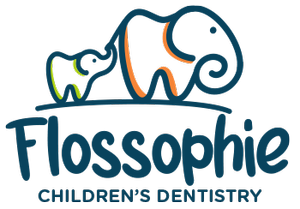
Most children with special needs have to face environments that do not suit their specific needs.
Parents and caregivers can’t find that space where every child would feel safe, understood, and accepted.
Putting into place practices for all children to thrive regardless of ability. This is more relevant for those seeking Special Need Care in Duluth.
Understanding Inclusion
Inclusion means more than just physical access. It’s about creating environments in which people with special needs feel genuinely welcome and supported in their communities.
Adaptations in space, changes in the way information is given, and attitude changes related to the individual differences that people bring are necessary for authentic inclusion.
Ultimately, what it does is offer every child a space in which they can grow, socially, emotionally, and academically, without any feelings of standing apart.
Key Strategies for Inclusivity
1. Staff Training and Awareness
Teachers and carers should be trained to learn about different disabilities and how to assist them well. This involves learning signs of distress, using the right communication skills, and modifying activities to be more inclusive.
Ongoing professional development keeps teams current with what works best for inclusion.
2. Sensory-Friendly Environments
Many children with special needs are also sensory sensitive. Building environments with filtered lighting, less noise, gentle textures, and specific quiet areas can make a big difference.
These environments facilitate children to self-regulate and feel more comfortable, particularly at times of transition or stress.
3. Physical Accessibility
Special needs accessibility is most important. Ramps, wide doors, accessible toilets, non-slippery floors, and simple, clear signage are included.
These changes not only benefit those with mobility impairments but also enhance independence and self-confidence. Classrooms, clinics, and play areas should be constructed to enable children to move about freely.
4. Communication Tools
The use of visual aids, sign language, assistive devices, and picture exchange communication systems (PECS) can fill communication gaps. These tools enable children to communicate and comprehend their environment more effectively.
Even minor changes, such as reduced instructions or visual schedules, can make a big difference in daily life for a child.
5. Inclusive Activities
Planning activities that accommodate different abilities guarantees that all children participate. This may involve adapting games, employing adaptive equipment, or providing several methods of accomplishing a task.
These alternatives provide each child with the chance to participate and succeed, and build friendships and social skills.
6. Emotional and Behavioural Support
A lot of special-needs children also have anxiety or behavioural difficulties. Having trained therapists or staff to provide emotional regulation techniques, calm-down routines, or one-on-one support can stabilize the environment better.
Positive reinforcement and patience are the chief aspects here.
The Role of Dental Care in Inclusivity
Oral health is a crucial aspect of overall well-being. However, children with special needs often face barriers in accessing dental care.
1. Specialized Dental Training
Dentists should be trained to handle the unique challenges presented by special needs patients. This includes understanding behavioural cues, being sensitive to sensory issues, and employing techniques to ease anxiety during dental procedures.
2. Adapted Dental Clinics
Creating disability-friendly spaces in dental clinics involves more than just physical modifications. It includes scheduling flexibility, longer appointment times, visual explanations of procedures, and a calm, welcoming atmosphere. These elements help children feel safe and reduce stress for both patients and parents.
3. Community Outreach
Engaging with the community to raise awareness about the importance of dental health for children with special needs can lead to better health outcomes.
Moreover, a pediatric dentist near you would host workshops, create accessible educational resources, and collaborate with local organizations to reach more families.
Collaborating with Families
Parents and caregivers are invaluable resources. Their insights can guide professionals in tailoring environments and services to better suit individual needs. Regular communication, progress updates, and shared goal-setting ensure that the child’s best interests are always prioritized.
Family involvement builds trust and strengthens the overall support system for the child.
Continuous Evaluation and Improvement
Inclusivity is an ongoing process. Regular assessments, feedback mechanisms, and a willingness to adapt are essential. Creating safe spaces for feedback from both staff and families helps improve the quality of care and ensures the environment evolves with the needs of the community.
Wrapping Up!
Creating inclusive environments requires dedication, empathy, and continuous effort. By implementing the strategies outlined above, communities can ensure that every individual, regardless of ability, feels valued and supported.
Empowering Every Child’s Smile
For families in Duluth seeking compassionate and specialized dental care, Flossophie Children’s Dentistry stands out. As a trusted pediatric dentist near you, we are committed to providing top-tier Special Need Care in Duluth.
Our clinic is designed with inclusivity at its core, offering both special needs accessibility and disability-friendly spaces to ensure every child receives the care they deserve.
When it comes to finding a reliable dentist in Duluth, you can count on Flossophie to provide a warm, welcoming, and fully accessible experience.
